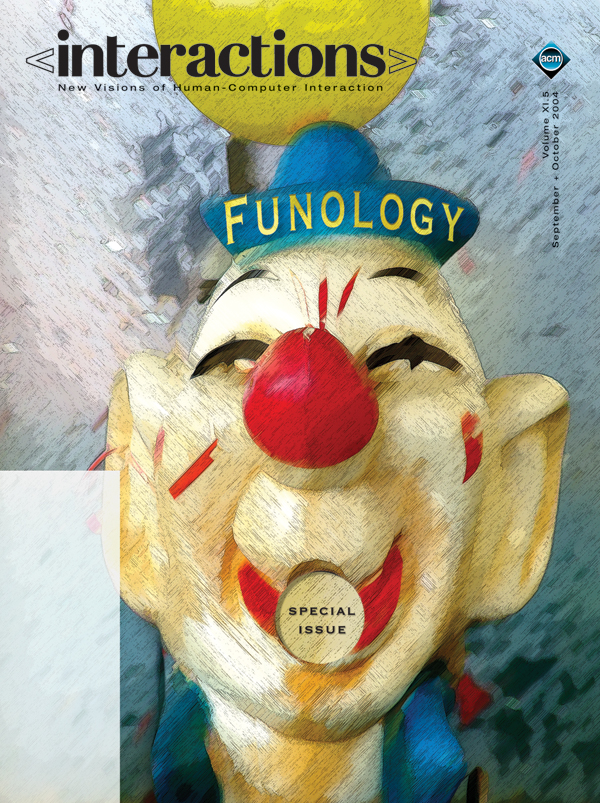Authors:
Mark Blythe, Marc Hassenzahl, Peter Wright
Information and communication technology has become a pervasive part of our personal and private lives. In recent years the field of human-computer interaction (HCI) has greatly broadened its scope to reflect this shift. Practitioners and researchers are now as likely to be concerned with how enjoyable a new technology is as how usable and useful it might be. New directions in the field encompass not just what technologies can do but how users can creatively adapt them to their needs. Emotional responses to design are being explored as systematically and rigorously as ease of use or ease of learning…
You must be a member of SIGCHI, a subscriber to ACM's Digital Library, or an interactions subscriber to read the full text of this article.
GET ACCESS
Join ACM SIGCHIIn addition to all of the professional benefits of being a SIGCHI member, members get full access to interactions online content and receive the print version of the magazine bimonthly.
Subscribe to the ACM Digital Library
Get access to all interactions content online and the entire archive of ACM publications dating back to 1954. (Please check with your institution to see if it already has a subscription.)
Subscribe to interactions
Get full access to interactions online content and receive the print version of the magazine bimonthly.







Post Comment
No Comments Found